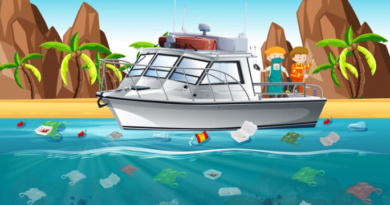How To Save Environment from Pollution 2024 ?
Introduction:
In an era where environmental concerns have reached critical levels, it is imperative for individuals to understand their role in combatting pollution. This comprehensive guide aims to shed light on the multifaceted issue of environmental pollution and provide actionable steps to save our environment from its adverse effects.
The Multifaceted Challenge of Environmental Pollution:
Environmental pollution is a complex issue affecting air, water, and soil, with far-reaching consequences for ecosystems and human health. Recognizing the interconnected nature of these challenges is crucial in formulating effective strategies to mitigate and prevent pollution.
Embracing Sustainable Practices in Daily Life:
Reducing Single-Use Plastics:
One of the most pervasive pollutants is single-use plastics. By opting for reusable alternatives, individuals can significantly reduce the amount of plastic waste entering landfills and waterways, thereby lessening the environmental impact.
Conserving Water Resources:
Water scarcity is a growing concern, and conservation efforts play a pivotal role. Simple practices such as fixing leaks, using water-efficient appliances, and being mindful of water consumption contribute to preserving this vital resource.
Supporting Eco-Friendly Products:
Choosing products with minimal environmental impact supports sustainable practices. Whether it’s clothing made from organic materials or household items with eco-friendly certifications, consumer choices can drive positive change.
Reducing Individual Carbon Footprint:
Embracing Energy-Efficient Technologies:
The energy we consume has a direct impact on pollution levels. Transitioning to energy-efficient technologies, such as LED lighting and energy-efficient appliances, significantly reduces carbon emissions and supports a cleaner environment.
Utilizing Public Transportation:
Private vehicles are a major contributor to air pollution. Utilizing public transportation, carpooling, or biking not only reduces individual carbon footprints but also eases traffic congestion and promotes sustainable urban mobility.
Practicing Energy Conservation at Home:
Simple actions like turning off lights when not in use, optimizing heating and cooling systems, and using programmable thermostats contribute to energy conservation, reducing the overall demand for power generation.
Strategies to Save the Environment from Pollution:
Transitioning to Renewable Energy Sources:
The Power of Solar Energy:
Solar energy is a clean and renewable resource that holds immense potential. Installing solar panels on rooftops or supporting community solar initiatives contributes to reducing reliance on fossil fuels and mitigating air pollution.
Harnessing the Wind: Wind Power Solutions:
Wind power is another sustainable energy source. Investing in wind turbines and supporting wind power projects contributes to the generation of clean energy, reducing the environmental impact of traditional power sources.
Adopting Eco-Friendly Transportation Methods:
Electric and Hybrid Vehicles:
The transportation sector is a significant contributor to pollution. Transitioning to electric or hybrid vehicles reduces greenhouse gas emissions, promotes technological advancements, and supports the shift towards a sustainable transportation future.
Carpooling Initiatives:
Carpooling is a practical and eco-friendly solution to reduce the number of vehicles on the road. Community-driven initiatives and workplace programs can encourage individuals to share rides, decreasing individual carbon footprints.
Public Transportation Advocacy:
Supporting and advocating for robust public transportation systems not only reduces individual reliance on private vehicles but also contributes to more efficient and sustainable urban planning.
Solutions to Pollution in the Environment :
Implementing Robust Waste Management Strategies:
The Importance of Recycling:
Recycling is a key component of waste management. Separating recyclables from general waste and supporting recycling programs contribute to resource conservation and the reduction of pollution.
Composting for Sustainable Waste Disposal:
Composting organic waste is a natural and sustainable way to dispose of kitchen and garden waste. This not only reduces the volume of waste in landfills but also produces nutrient-rich compost for soil enrichment.
Responsible and Efficient Waste Disposal Methods:
Proper waste disposal is critical in preventing pollution. Adopting responsible waste disposal methods, such as using designated bins and participating in community cleanup efforts, safeguards the environment from the harmful effects of mismanaged waste.
Advocating for and Supporting Environmental Policies:
Grassroots Advocacy for Change:
Individuals can play a crucial role in advocating for change. Participating in community initiatives, joining environmental organizations, and voicing concerns to local representatives contribute to the collective effort to influence policies that address pollution.
Supporting Legislation for Pollution Control:
Advocacy is reinforced by supporting and pushing for legislative measures that address pollution. Voting for environmentally conscious policies and supporting lawmakers committed to pollution control initiatives are essential steps in effecting systemic change.
Conclusion:
In conclusion, the journey to saving the environment from pollution is multifaceted and requires concerted efforts from individuals, communities, and policymakers. By embracing sustainable practices, advocating for clean energy, and supporting policies that prioritize environmental health, we can collectively pave the way towards a cleaner, healthier planet for future generations.
For More Articles visit : Home Page



